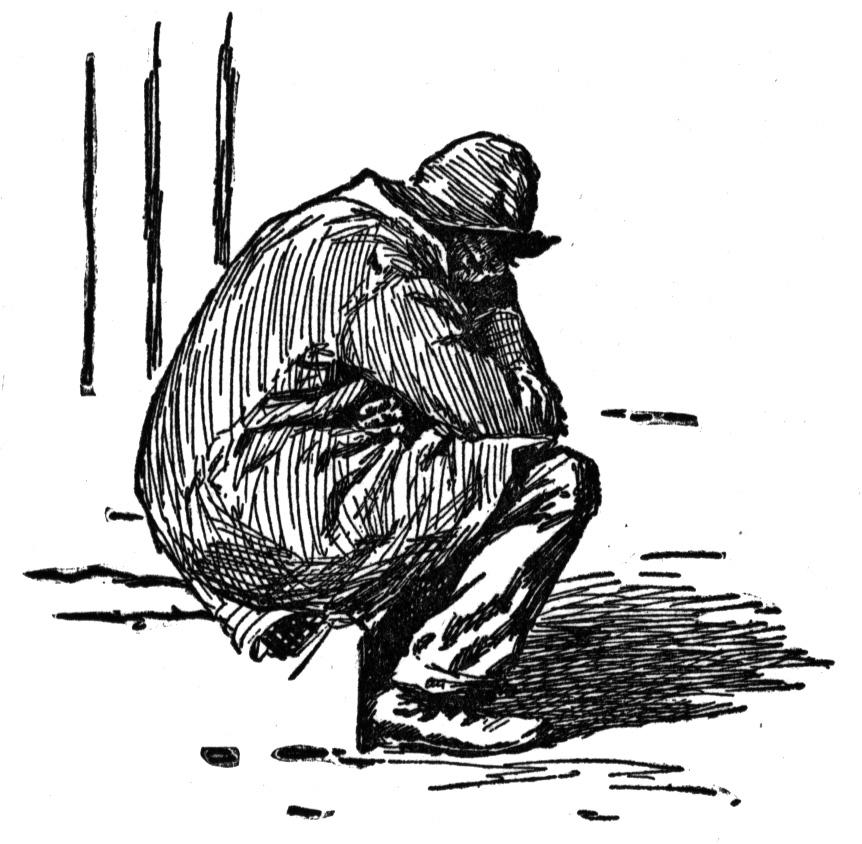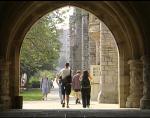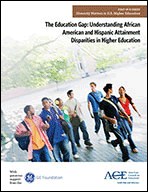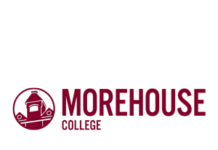A Small Decrease This Year, But the Racial Gap in SAT Scores Remains Huge
The mean score for Blacks on the combined critical reading and mathematical portions of the SAT was 860. This was a four-point increase from a year ago. But the mean score for Whites on these sections was 201 points higher.
The Huge Racial Gap in College Readiness
Only 5 percent of all African American ACT test takers showed that they were "college ready" in all four subject areas of English, reading, mathematics, and science. For Whites, one third of all students were deemed college ready in all four subject areas.
University of Missouri Reports the Most Diverse Student Body in Its History
There are 2,415 African American students on the Columbia campus this semester. They make up 7.1 percent of all students. It must be noted that much more needs to be done. Blacks make up about 12 percent of the college-age population in Missouri.
New Data on the Racial Gap in Public School Teachers and Principals
African Americans make up 16 percent of all enrollments in the nation's public schools. But Blacks are only 10.1 percent of all teachers and 6.8 percent of all public school principals.
University of Pennsylvania Researchers Examine Racial Differences in Sleep Behavior
The study found that Black women tended to support unhealthy beliefs, attitudes, and practices regarding sleep more so than White women. Black women were more likely than White women to turn to alcohol as a sleep aid and were more likely to read, watch television, or do other activities in bed.
Texas Consortium Looks to Boost Educational Opportunities for Minority Men
The University of Texas at Austin has launched the Texas Education Consortium for Male Students of Color, a new statewide network of public school districts, community colleges, and four-year public universities.
Older Black Caribbeans and Older African Americans Have Different Rates of Depression
The study of more than 2,000 American adults by researchers at Michigan State University found that Whites and Blacks of Caribbean descent experienced much higher rates of depression than African Americans.
University Study Finds Racial Disparity in Survival Rates After Coronary Bypass Surgery
The data showed that for coronary bypass patients who also had peripheral artery disease, the average survival time for Whites was 9.5 years and for Blacks the average survival time was eight years.
Research Finds Varying Racial Outcomes Among College Graduates of Art Programs
A new report from the Strategic National Arts Alumni Project (SNAAP) finds racial differences among students who majored in the arts in college. Some 60 percent of White graduates currently work as artists, compared to 53 percent of Black graduates.
Study Finds Black Girls Tend to Be Raised in an Environment That Helps Prevent...
A new study by researchers at the Yale School of Medicine finds that African American girls are typically raised in an environment that shields them from alcohol abuse but White American girls are often raised in an environment that tends to increase the chances that they will abuse alcohol.
The Persistent Racial Digital Divide
Access to information is extremely important in today's society. Those that have it are better able to compete in the job market or in gaining access to higher education. But new data from the U.S. Census Bureau shows that there is a persistent racial digital divide.
HBCUs Hit Hard by NCAA Sanctions
Eighteen teams were penalized for the poor academic performance of their student athletes by being declared ineligible for postseason competition in the 2013-14 academic year. Of these 18 teams, 15 were teams at historically Black colleges and universities.
Yale Research Finds a Large Racial Gap in Awareness of the HPV Vaccine
Using data from the Centers for Disease Control and Prevention, Yale researchers found that nearly 58 percent of White Americans were aware of the vaccine compared to only 46 percent of African Americans.
New Data on the Racial Gap in Degree Attainments
African Americans make up about 14 percent of all students enrolled in higher education but they are a far lower percentage of all degree earners. In the 2011-12 academic year, African Americans earned 10.1 percent of all degrees earned at four-year institutions.
University of North Carolina Study Finds Racial Gap in Prostate Cancer Treatment
The results showed that on average, African American men began treatment seven days later than White men after they had been diagnosed with prostate cancer. For men with aggressive or high risk prostate cancer, Black men began treatment nine days later than White men.
Mississippi Public Universities Look to Increase Opportunities for Minority-Owned Businesses
Under the initiative, minority businesses will post information online about the goods and services they offer. Universities will solicit quotes through the online systems so that minority businesses will be aware of all contracting opportunities.
Survey Shows Barriers to Black Wealth Formation
The huge wealth gap between Black and Whites makes it harder for African American families to finance the college education of their children. Even for African Americans who have higher incomes, there are significant barriers to accumulating wealth.
University Economic Report Finds That Blacks in Texas Are Losing Ground to Other Groups
A report from the Institute of Urban Policy Research and Analysis at the University of Texas at Austin finds that the economic condition of African Americans in Texas has deteriorated since the beginning of the century. African Americans have the lowest median income of any racial or ethnic group.
New Study Documents Huge Racial Disparity in School Suspensions
The study by researchers at the Civil Rights Project at the University of California at Los Angeles found that up to 40 percent of all Black students in schools in Chicago, Dallas, Memphis, and St. Louis were suspended at least once during the school year.
Blacks Are Only a Tiny Percentage of U.S. Medical School Faculty
Of the 137,798 medical school faculty members in the United States in 2011, only 3,952, or 2.9 percent, were Black. Blacks were only 1.4 percent of the full professors at U.S. medical schools.
Duke’s Efforts to Diversify Its Faculty Over the Past Quarter-Century
From 1993 to today the number of Blacks teaching at Duke University in Durham, North Carolina, has increased from 44 to 138. Today, Blacks are 4.25 percent of the university's total faculty.
Study Finds That Outdoor Education Can Close the Racial Gap in Environmental Literacy
When middle school students were taken outdoors to learn about environmental science, they were more likely to perform better academically in the subject compared to their white peers than in cases when all students remained in the classroom for instruction.
The Gender Gap in African American Medical School Enrollments
Nationwide, women make up 47.2 percent of all medical school students in the United States. But for African Americans, the gender gap is significantly in favor of women.
Study Examines Racial Differences in Divorce Rates for Highly Educated Women
A new study by an assistant professor in the School of Social Work at Rutgers University in New Brunswick, New Jersey, finds that highly educated Black women are not as sheltered from divorce compared to highly educated women of other racial and ethnic groups.
Brandeis University Study Analyzes the Large and Growing Racial Wealth Gap
The racial wealth gap has tremendous consequences in the ability of African Americans to afford higher education. The report finds that in 2009 the median net worth of White households was $265,000. For Black households, the figure was $28,500.
New Report Shows That Blacks Are Doing Poorly in Los Angeles County Schools
The report concludes that "if current trends continue, only 1 in 20 of today’s African-American kindergartners will go on to graduate from high school and complete a degree at a four-year California university."
Federal Commission Finds Vast Inequities in U.S. Educational System
The report of the U.S. Equity and Excellence Commission found that the achievement gap between children from high-income and low-income families is significantly wider for children who were born in 2001 than for children born 25 years earlier.
Black Participation in the AP Program Soars, But a Large Racial Scoring Gap Persists
Blacks made up 14.5 percent of the graduating Class of 2012 but were 9.2 percent of all AP test takers and only 4.4 percent of all students who successfully completed an AP examination.
Good News! More Than 5 Million African Americans Now Hold College Degrees
For Blacks over the age of 25 in 2012, 21.2 percent held a college degree. This is an increase from 19.9 percent in 2011. For Whites over the age of 25 in 2012, 34.5 percent held a college degree, up from 34.0 percent in 2011.
A Significant Racial Gap in Academic Preparation for a College-Level Curriculum
New information from the U.S. Department of Education shows that during the 2007-08 academic year, 30.2 percent of all first-year African American college students took remedial courses compared to 19.9 percent of first-year White students.
A Check-Up on Black Progress in Nursing Degree Programs
According to data from the American Association of Colleges of Nursing, Black have made tremendous progress over the past decade in increasing their percentage of students in bachelor's, master's, and doctoral degree programs in nursing.
The Racial Gap in Homework for Students Preparing for College
Only 29.7 percent of Black high school students do homework five or more days per week compared to 44.3 percent of White high school students.
Black First-Year Students at the Nation’s Leading Research Universities
For the sixth year in a row, Columbia University in New York City has the highest percentage of Black first-year students among the 30 highest-ranking universities in the nation.
New Report Looks to Explain the Racial Gap in College Graduation Rates
A new report from the American Council on Education examines why Black and Hispanic students have significantly lower rates of degree attainment than other students at U.S. colleges and universities.
University Study Finds That the Racial Gap in Fatal Coronary Disease Is Widening
The research, conducted at the University of Alabama Birmingham, shows that despite a steady decline in fatal coronary heart disease for all groups, since 2000, the racial gap has actually increased.
Blacks Take Far Longer Than Whites to Earn Their Bachelor’s Degrees
For those who earned a bachelor's degree in the 2007-08 academic year, the average amount of time for Blacks to earn their degree was 98 months compared to 73.3 months for Whites. Nearly a quarter of Blacks took more than a decade to earn their bachelor's degree.




















































